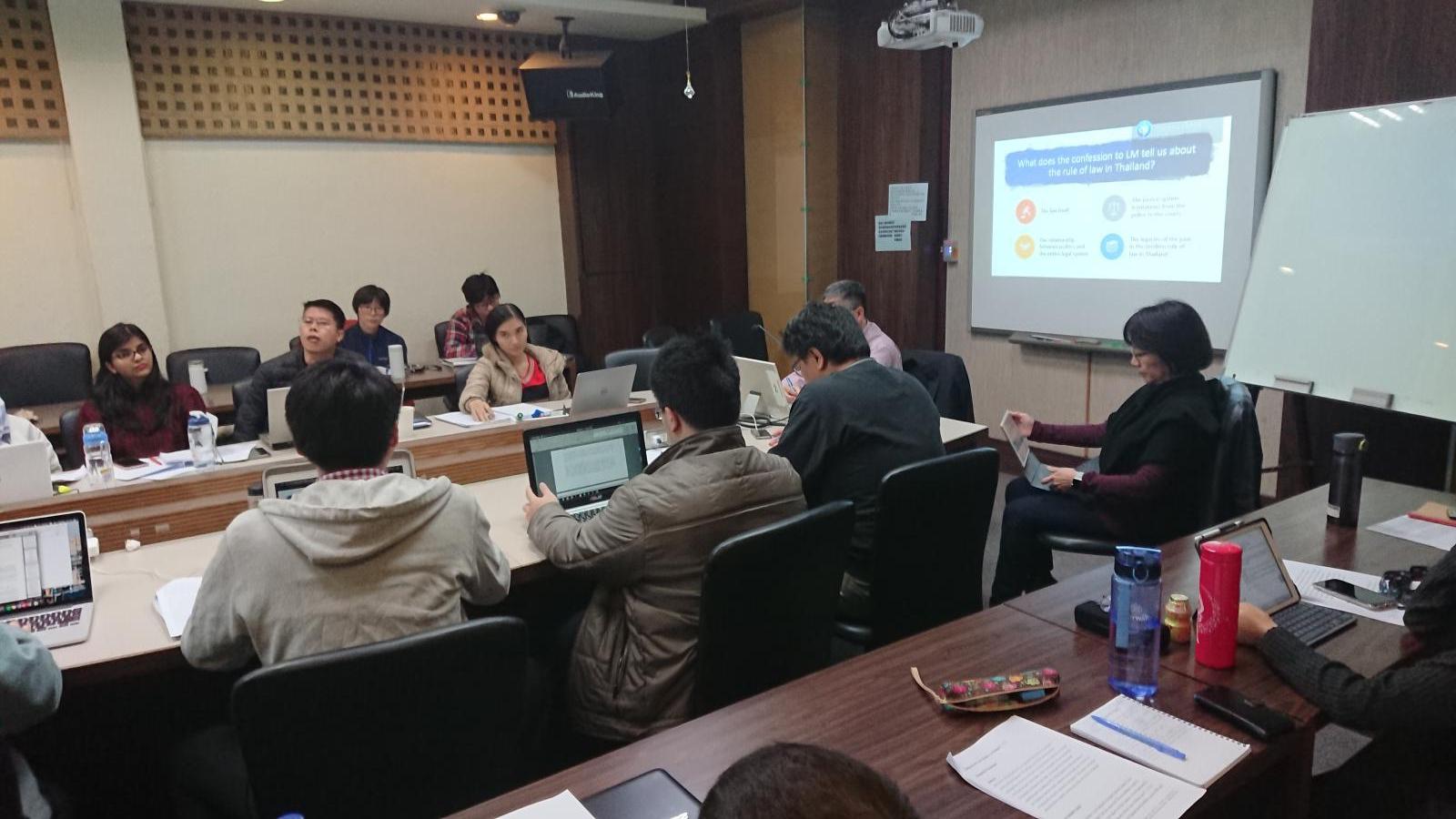

側記 A thought crime in a hyper-royalist nation: Notes on Prof. Thongchai Winichakul’s lecture on the Lese Majesty law in Thailand
2019-03-26
A thought crime in a hyper-royalist nation: Notes on Prof. Thongchai Winichakul’s lecture on the Lese Majesty law in Thailand
/ Show Ying Xin
After delivering his keynote speech at the International Conference of Cultural Studies Association on March 10, in which he, as a historian and a survivor of the 1976 Thammasat University massacre, gave a moving lecture about the unforgetting of the incident, Prof. Thongchai Winichakul turns to the contemporary social condition in Thailand in the lecture next day. He talks about the Lese Majesty law (hereafter LM), or Article 112, a law which seems to be an “exception” to the normative rule of law.
The LM law states that “Whoever defames, insults or threatens the King, the Queen, the Heir Apparent, or the Regent shall be punished with imprisonment of three years to fifteen years”. The number of LM charges has skyrocketed after the military coups in 2006 and 2014, which shows that this highly-controversial legal instrument has been used to suppress opponents and public expressions in the name of protecting Thai monarchy. Significantly, most people arrested for the crime confessed, even though all of them denied committing any wrongdoing, nor were they physically abused by the police.
Prof. Thongchai first traces the history of the LM law. In old Siam, when the state and the monarch were identical, LM was part of treason though it was less severe if compared to rebellion or defiance of the royal order. After the 1932 revolution which transformed Thailand into a nation of constitutional monarchy, LM was no longer seen as treason and criticism towards the monarchy was allowed if it was for public interests. Nevertheless, after the 1947 coup generated by the alliance between the military and the monarchists, the 1949 constitution stated clearly that the monarchy is inviolable. Article 112 in the new criminal code of 1957 thus made LM a crime against national security, no longer an offense to the monarch as a person. Since then, Thai politics and culture have been caught in the condition of what Prof. Thongchai describes as “hyper-royalism”, the permeation of royalism in everyday life which often involves exaggeration and exaltation.
After the coups in 2006 and 2014, LM has been abused to serve the purpose of the junta regime which is to intimidate and suppress the critics. Problematic interpretations of the law, unjust process and excessive punishments have made LM the most notorious thought crime in contemporary Thailand. Most violators are denied bail and would be detained during the police investigation for maximum of 84 days. Moreover, under the state of emergency (which was declared after every coup), LM cases will be heard, usually secretly, in the military court which is time-consuming and no appeal process is allowed. More terribly, the harsh sentence (the highest in history is seventy years in jail, for posting/sharing seven Facebook messages) compels the accused to confess as it will reduce the sentence by half.
According to his research, Prof. Thongchai notes that most of those charged for LM confessed to the crime not because of being physically tortured. Reduction of prison term after confession is one of the reasons, but Prof Thongchai argues that the terrible condition in Thai prison is probably the most decisive factor. However, scholars in criminology seem to neglect the fact that the ideas of “modern prison” are not necessarily applicable to prisons in many countries including Thailand. Also, legal culture and systems in Siam civilization were very much based on Hindu-Buddhist philosophy, and this only nation in Southeast Asia which had not been officially “colonized” undertook a rather different path from its counterparts in the transformation of a modern nation.
It is noteworthy that after the death of the late King Bhumibol in 2016 and the change of political situation in Thailand (an election to be held on 24 March, first in eight years), there were signs of changes regarding the LM charges as the number of arrests dropped off since early 2018. However, it is still too early to judge.

.jpg)
近期新聞 Recent News


